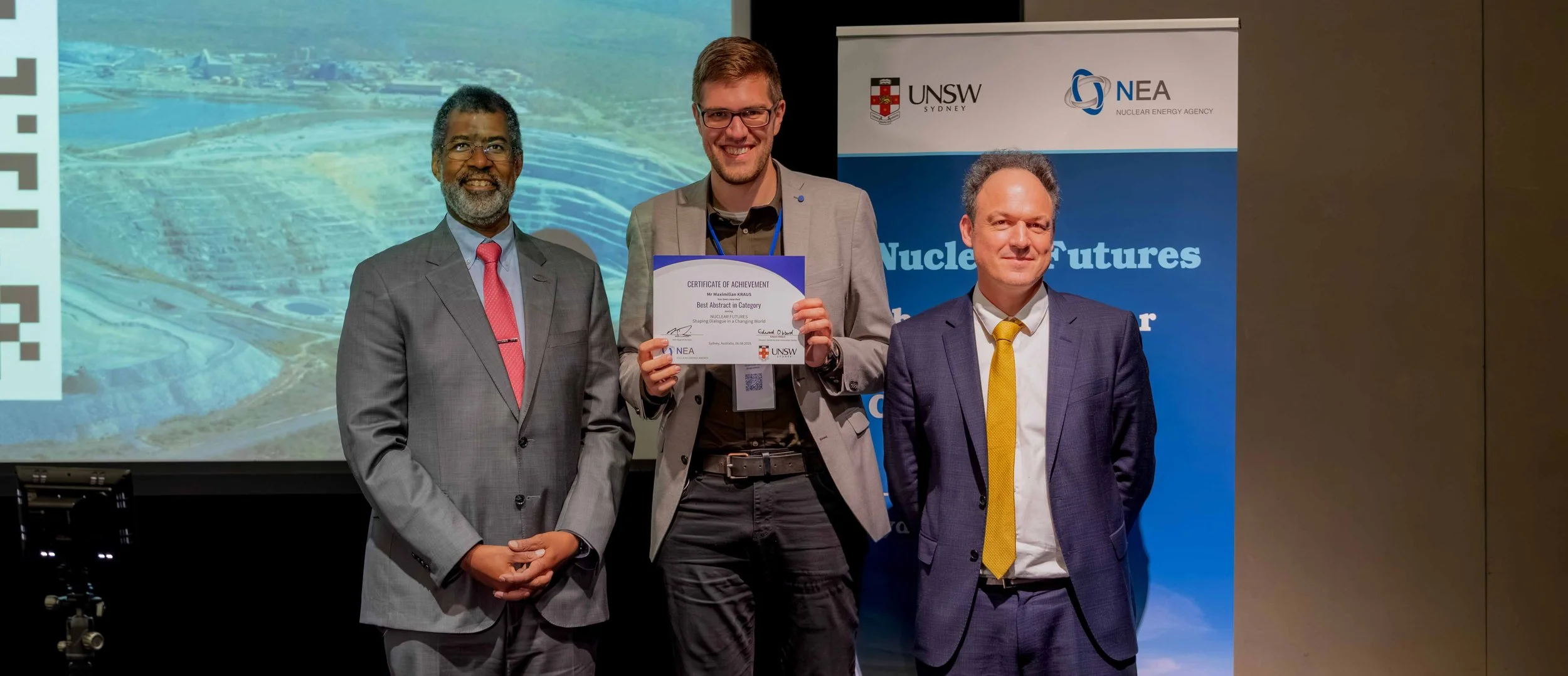Nuclear Futures: Shaping Dialogue in a Changing World
Patrick Carter-Cortez and Maximilian Kraus recently attended the Nuclear Futures: Shaping Dialogue in a Changing World conference in Sydney and both won Certificates of Achievement for Best Abstract in Category.
Nuclear Futures: Shaping Dialogue in a Changing World conference brought together leading international nuclear experts and early career professionals to discuss global perspectives and key questions concerning the application of nuclear technologies and innovation in society.
With support from key partners the event brought together 65 early-career professionals from around the world. These emerging leaders joined intensive, facilitated discussions on the future of nuclear innovation and technology. Through the nomination process, participants played a key role in shaping key global questions that were later discussed and answered during the event itself.
Convened in collaboration with the Nuclear Energy Agency, senior leaders at international and national levels joined delegates in co-writing a document highlighting key findings from the workshop. The publication will outline key issues, capture insights and share recommendations on how Australia can support global nuclear growth.
Patrick Carter-Cortez summarises his abstract and the conference below.
"Advanced reactor systems are not only central to the future of clean energy on Earth, but they could also help unlock humanity’s next chapter in space exploration. One of the main challenge lies in qualification: before these systems can be deployed, their fuels and materials must be rigorously tested under extreme conditions. This is a process that has historically cost billions and taken decades. My research develops approaches to designing targeted irradiation experiments, using mechanistic modelling and optimisation, to make the qualification of new nuclear systems more efficient in both time and cost. This raises important questions about regulatory alignment and acceptance, as it represents a paradigm shift from relying solely on exhaustive empirical evidence to incorporating complementary computational and targeted experimental approaches.
"This conference was unlike others I’ve attended, as half of the programme was dedicated to facilitated small-group conversations on the key challenges facing the nuclear sector. As part of the fuel technology group, I had the opportunity not only to share my knowledge and experiences in fuel qualification, but also to gain insights into other stages of the fuel cycle (from mining to long-term storage) through discussions with researchers and policy makers from around the world."
Professor Geoff Parks, Patrick's supervisor says;
"Patrick’s PhD research is examining the possibility of accelerating the process of qualifying new fuel designs for use in nuclear reactors by combining state-of-the-art multiphysics modelling of fuel performance with carefully designed experiments in materials test reactors. The Nuclear Futures workshop in Sydney provided an invaluable opportunity for early career professionals to discuss the future of nuclear technology and innovation and to think about the next steps in their own careers in this context. It was fantastic to learn that Max and Patrick had been judged to have submitted the best abstracts in two of the four workshop themes."
Image above L-R: William D. Magwood, Director-General of the Nuclear Energy Agency, Maximilian Kraus and Prof. Edward Obbard, Director of the UNSW Nuclear Innovation Centre.
Maximilian Kraus summarises his abstract and the conference below.
"I argued that while the ecological benefits of nuclear energy, such as no operational CO2 emissions and minimal land footprint, are now widely recognised, and rising electricity demand has increased interest in nuclear as a reliable power source, the main obstacle to expansion in the West is the high investment cost. This is due to several factors. One is that many countries have lost nuclear construction expertise after decades without new builds, which requires them to re-establish supply chains and workforce training. This, and the practice of sometimes starting construction of first-of-a-kind reactors before designs are finalised, can lead to long construction times and delays, which drive up costs.
"High regulatory burdens, that differ from country to country, also lead to expensive re-designs, even if the same reactor type has already obtained a licence elsewhere. To reduce the cost, I proposed building fleets of the same reactor type to leverage industrial learning and new supply chains, as well as streamlining and harmonising the regulatory framework across countries. Although first-of-a-kind reactors are expensive, countries should not abandon their ambitions after a single project, because then all the investment in supply chains and specialist training would be wasted.
"I enjoyed learning more about nuclear policy making because so far, my focus was largely on nuclear engineering and this event helped me get a more wholistic view on the subject. I also found it interesting to get an insight into the Australian perspective on nuclear, and I was surprised to find that there is much research going on in related fields, such as material science, detector development and medicine, even though Australia does not have any nuclear power reactors at the moment."
This news story was originally published on the Department of Engineering website.


